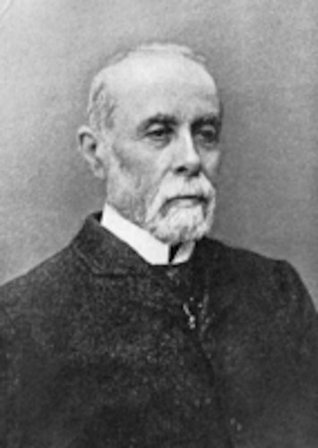- Bible
- Read the Bible
- Bible Versions
- Verse of the Day
- Reading Plans
- Verses by Topic
- Books of the Bible
- Bible Images
- Study
- Commentaries
- Concordances
- Dictionaries
- Encyclopedias
- Sermons
- Bible Atlas & Maps
- BP Wiki
- Devotionals
- Today's Devotionals
- Light of the World
- All Devotionals
- Inspirational Quotes
- More
- Picture Quotes
- Videos
- Inspirational
- Bible Study
- What The Bible Says
- Bible Q&As
- Daily Bread
- Bible by Genre
- Bible Stories
- Random Bible Verse
- Community
- Store
Ezra or, Restoration from Babylon
by Edward Dennett
Originally Published in 1912
THE book of Ezra marks an important epoch in God's dealings with His people Israel. Although seventy years had elapsed, it is yet the continuation of 2 Chronicles; for time does not count with the Jews when in exile from the land of promise. They had lost everything by their sins and apostasy, and God had sent Nebuchadnezzar to chastise them, to destroy His own house which His people had profaned and polluted, to carry them away captive to Babylon, and "to fulfil the word of the Lord by the mouth of Jeremiah, until the land had enjoyed her sabbaths." (2 Chr. 36: 21.)
Nothing could be sadder than the record of the destruction of Jerusalem, and the termination of the kingdom as entrusted in responsibility to the hands of man, except indeed the still more fearful accounts of the siege and capture of Jerusalem by Titus soon after the commencement of the Christian era.
THE book of Ezra marks an important epoch in God's dealings with His people Israel. Although seventy years had elapsed, it is yet the continuation of 2 Chronicles; for time does not count with the Jews when in exile from the land of promise. They had lost everything by their sins and apostasy, and God had sent Nebuchadnezzar to chastise them, to destroy His own house which His people had profaned and polluted, to carry them away captive to Babylon, and "to fulfil the word of the Lord by the mouth of Jeremiah, until the land had enjoyed her sabbaths." (2 Chr. 36: 21.)
Nothing could be sadder than the record of the destruction of Jerusalem, and the termination of the kingdom as entrusted in responsibility to the hands of man, except indeed the still more fearful accounts of the siege and capture of Jerusalem by Titus soon after the commencement of the Christian era.
BUY NOW
Kindle Edition, 87 pages
Published January 8th 2013
© 2025 Bibleportal.com All rights reserved.

Edward Dennett was born in the Isle of Wight, at Bembridge, and died in Croydon after a short illness. His people were all in the Church of England, but he was converted as a lad through the instrumentality of a godly clergyman, and he left the church from conviction and became minister of a Baptist Chapel in Greenwich, having previously matriculated at London University.
In 1873 he contracted a severe illness through visiting one of his parishioners, and was sent abroad for a year by his people. He wintered at Veytaux, and coming in contact with 'brethren' staying at the same 'pension', he had a good deal of intercourse with them, which helped to clear in his mind certain difficulties that he had.
Taking no steps till his return, he explained his views and resigned his charge. Shortly after 'breaking bread' for the first time with those gathered simply at the Lord's table "unto His Name".
Mr. Dennett had the pen of a ready writer. His sphere of labour was England, Ireland, and Scotland, and he paid visits to Norway, Sweden, and America. He had pastoral and teaching gifts of a high order.
... Show more